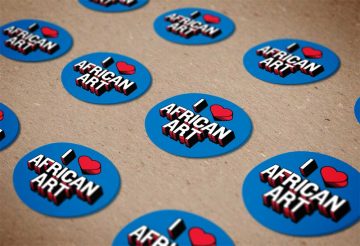Our Shared Future: What Comes First? for the youth of Johannesburg
Moleskine Foundation will partner with the Smithsonian National Museum of African Art and Constitution Hill for the next chapter of its AtWork educational tour What Comes First? Held August 26 – 30, 2022, in the iconic Constitution Hill—a former apartheid prison complex—in Johannesburg, the workshop is part of The Demonstration, a 10-day experience presented by the National Museum of African Art in collaboration with Johannesburg Art Fair’s Open City and the Moleskine Foundation.The Demonstration, curated by South African visual artist and cultural curator Siwa Mgoboza. The experiences will focus on the theme of ‘Our Shared Future: Reckoning with Our Racial Past’ as part of a One Smithsonian coordinated, institutional effort to explicitly address systemic racism and racial inequity and take the issue to a global community through the lens of art and creativity.
It is particularly relevant and timely—when Johannesburg is pulsing with the FNB Joburg Art Fair, Open City and other important events—for AtWork to participate in this vibrant program. The workshop will provide a space where an unconventional mix of creative young people from diverse backgrounds and underserved communities can reckon with the past and imagine the future in dialogue with young artists, collectors, policymakers, lawyers, doctors, and curators.
Led by Simon Njami, internationally renowned writer, curator, lecturer, critic, essayist, and Moleskine Foundation advisor, 25 young thinkers will debate and discuss on the topic “What comes first?” before each produces a personalized notebook that is the reflection of a thought at work and expresses what comes first for each of them. Their works will be exhibited at the Old Fort of Constitution Hill starting September 3 before becoming part of the Moleskine Foundation Collection, a unique archive of more than 1400 art notebooks.
About AtWork
AtWork is an itinerant educational format, conceived by Moleskine Foundation and Simon Njami, that uses the creative process to stimulate critical thinking and debate among young people. By unlocking participants’ creative potential through collective discussion and personal reflection, AtWork workshops cultivate self-awareness, self-confidence, and changemaking attitudes and contribute to building a new generation of creative thinkers and doers. All AtWork participants become part of the AtWork community of global creative thinkers who believe that creativity can be a tool for social transformation.
Since its inception in 2012, AtWork has held 24 workshops in 15 countries for more than 500 students. AtWork Johannesburg is the third chapter of the 2022 AtWork What Comes First? tour that started in Milan (Italy), proceeded to Paris (France), and will be going to N’Djamena (Chad) in October.
About Simon Njami
Simon Njami is an internationally acclaimed writer, curator, lecturer, critic, and essayist based in Paris. He has served as artistic director of many biennales, including the Bamako Photography Biennial, Dakar Biennale, and Kampala Biennale. He cocurated the first African pavilion at the 52nd Venice Biennale (2007) and curated the first African contemporary art fair in Johannesburg (2008). He also served as cultural advisor to the French Ministry of Foreign Affairs for 10 years. A member of numerous art and photography juries, Njami has curated many exhibitions, including Divine Comedy: Heaven, Purgatory, and Hell Revisited by Contemporary African Artists (2014–15) and Africa Remix: Contemporary Art of a Continent (2004–07). Njami also cofounded and was editor-in-chief of Revue Noire. He received an M.A. in art history and philosophy and a Ph.D. in law and modern literature.
About Moleskine Foundation
The Moleskine Foundation is a non-profit organization that pursues a mission of “Creativity for Social Change.” A central belief is that creativity is key to producing positive change in society and driving our collective future. Its focus is to inspire, empower and connect young people to transform themselves and their communities. To do so, the Foundation implements a set of unconventional educational programs that unlock the creative potential and develop change making attitude in youth. The Foundation enables collaborative processes to generate spaces where criticality and imagination can occur. It is done through the development of a global platform of cultural and creative partner organizations operating in the field of creativity for social transformation.
Moleskine and Moleskine Foundation share the core values, mission and vision around the role of creativity and culture to change the world. To pursue this mission Moleskine Foundation operates in complete independence from the company. Moleskine’s financial contribution sustains the Foundation’s operational costs, allowing 100% of the attracted resources to go straight to impact, creating a unique and authentic model for social change.
